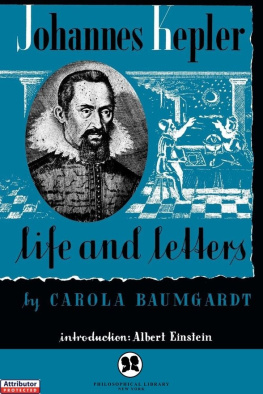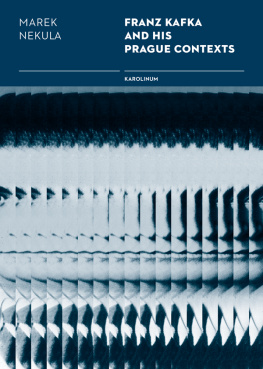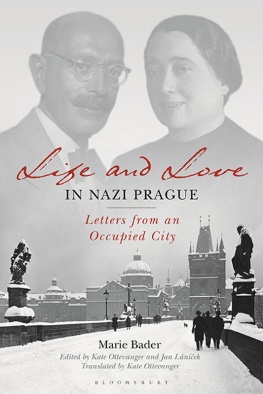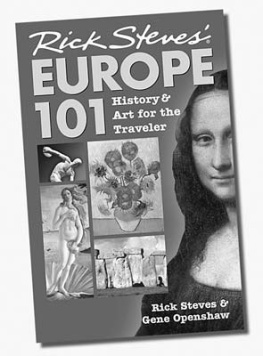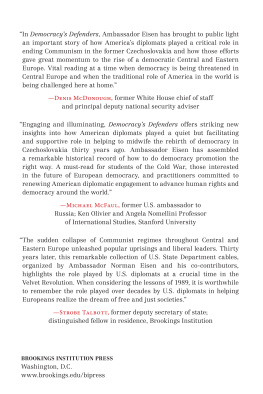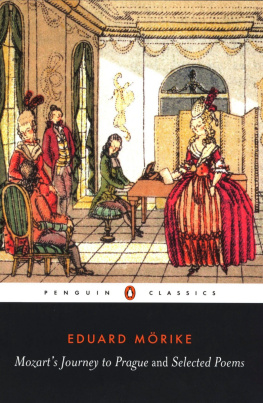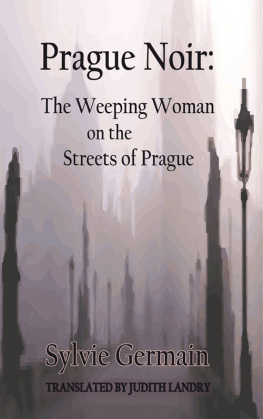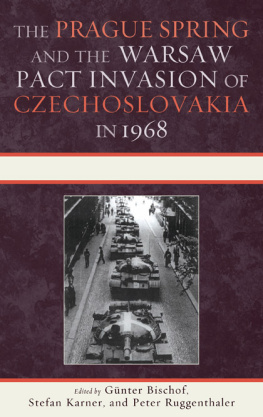Doubravka Olšáková (eds.) - Eleanor Wheeler: Letters from Prague,1947-1957
Here you can read online Doubravka Olšáková (eds.) - Eleanor Wheeler: Letters from Prague,1947-1957 full text of the book (entire story) in english for free. Download pdf and epub, get meaning, cover and reviews about this ebook. year: 2022, publisher: De Gruyter, genre: Politics. Description of the work, (preface) as well as reviews are available. Best literature library LitArk.com created for fans of good reading and offers a wide selection of genres:
Romance novel
Science fiction
Adventure
Detective
Science
History
Home and family
Prose
Art
Politics
Computer
Non-fiction
Religion
Business
Children
Humor
Choose a favorite category and find really read worthwhile books. Enjoy immersion in the world of imagination, feel the emotions of the characters or learn something new for yourself, make an fascinating discovery.

- Book:Eleanor Wheeler: Letters from Prague,1947-1957
- Author:
- Publisher:De Gruyter
- Genre:
- Year:2022
- Rating:5 / 5
- Favourites:Add to favourites
- Your mark:
- 100
- 1
- 2
- 3
- 4
- 5
Eleanor Wheeler: Letters from Prague,1947-1957: summary, description and annotation
We offer to read an annotation, description, summary or preface (depends on what the author of the book "Eleanor Wheeler: Letters from Prague,1947-1957" wrote himself). If you haven't found the necessary information about the book — write in the comments, we will try to find it.
Eleanor Wheeler: Letters from Prague,1947-1957 — read online for free the complete book (whole text) full work
Below is the text of the book, divided by pages. System saving the place of the last page read, allows you to conveniently read the book "Eleanor Wheeler: Letters from Prague,1947-1957" online for free, without having to search again every time where you left off. Put a bookmark, and you can go to the page where you finished reading at any time.
Font size:
Interval:
Bookmark:
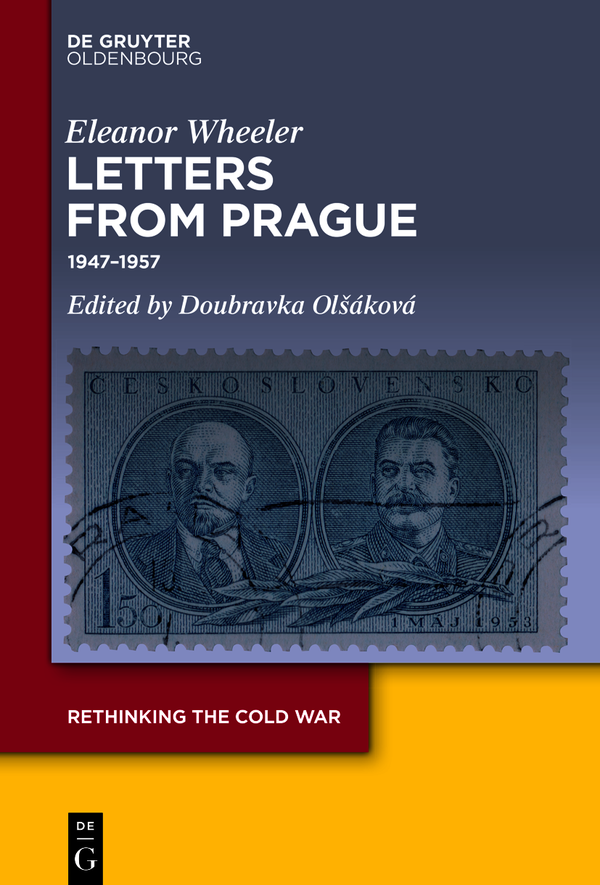
Rethinking the Cold War
Edited by
Volume
ISBN 9783110690408
e-ISBN (PDF) 9783110690507
e-ISBN (EPUB) 9783110690545
Bibliographic information published by the Deutsche Nationalbibliothek
The Deutsche Nationalbibliothek lists this publication in the Deutsche Nationalbibliografie; detailed bibliographic data are available on the Internet at http://dnb.dnb.de.
2022 Walter de Gruyter GmbH, Berlin/Boston
Eleanor Wheelers Letters from Prague is an eye-witness account of Prague and the development of Czech society and culture written from the perspective of an American family living in Czechoslovakia, whose return to the USA would have been problematic. This volume contains a selection of letters written behind the Iron Curtain in Prague at a time when there was surge in political and social anti-Communism in the USA culminating in McCarthyism (19501954). At the time, all explicit expressions of leftist sentiment and other deviations from normal social behavior were automatically considered to indicate an affinity for Communism. Even liberals and members of Henry Wallaces Progressive Party were rapidly branded as Communists.
The postwar order, and particularly the start of the Cold War, fueled the rise of anti-Communism and the creation of an enemy on the other side of the Iron Curtain. Heightened tensions between Democrats and Republicans over political issues contributed to the escalation of the anti-Communist campaign. The domestic political situation, which even led Democrats to adopt radical views of the leftist oppositionincluding those within their own partywas heavily affected by rising fears, which were fueled by the uncertainty of postwar developments. Economic prosperity hinged upon how the postwar situation would develop and whether or not the USA would maintain its position as a world power. Therefore, the external threat of Communism gave rise to fear within American society, which explains the mass hysteria that allowed an average politician like Joseph McCarthy to step into the limelight. The Truman Doctrine, which aimed to limit Communisms influence abroad, was reflected in the behavior of Americans at home. Fear of what the future would bring also explains the excesses of American society in this period. Marie-France Toinet has characterized this era as a radical synthesis of American history, the objective of which was to radically call into question the very foundations of American democracy, particularly the acceptance of differences. Anti-Communism was a mere alibi for those who wished to point their fingers at anything that was different; it was anti-Jewish without being overtly anti-Semitic, and it was anti-Black without being overtly racist.
In early-1950s America, which was divided into those who were guilty and their judges (and nearly nothing in between), the impossibility of determining exactly how many Communists there were gave anti-Communism a mythical air. The numbers always depended on where and when possible dangers were being spoken about. The CPUSA, as part of its survival strategy, did not keep a list of members. Thus, in place of an official list of CPUSA members, the State Department created a list of disloyal government employees. In 1946, for example, there was a list of about 3,000 government employees who had been screened by loyalty review boards; 284 of them did not have their contracts renewed. By 1950, only 65 of these people were still working for the government.
One prominent figure whose fate was debated on the floor of the US Senate was George Wheeler. His story, as well as that of his family, comprises an exceptional tale that reflects the transformations of the Cold War from a perspective for which we still lack sources. The Wheelers view of the Communist world of the 1950s, which many historians consider to be only an era of political trials, was exceptionally diverse; the change in political course and the transition of Czechoslovak society to Stalinism was for many people incomprehensible given Czechoslovakias high levels of social and cultural development. Nearly everything was working better than during the war, and society and culture were flourishing. Leading figures in the world of culture came to Prague, there was talk of peace, and many peace initiatives were created. Most intellectuals spoke English, and their liberal ideas jibed with the leftist sentiments that the Wheelers remembered from the USA.
The Wheelers story also highlights the true impact that the American anti-Communist campaign of the late 1940s and early 1950s had on leftist intellectuals, who soughtand very often foundrefuge on the other side of the Iron Curtain, where in many cases they built successful academic careers.
The history of the Cold War as documented by historians in their books often differs from the history of the Cold War as it was experienced by people on both sides of the Iron Curtain. Today, we no longer realize that the half century of relatively stable, peaceful coexistence between two antagonistic blocs was a period of exceptional stability in the twentieth century. However, people living on the boundaries of these two worldsmigrswere well aware of this fact. In many respects, their lives were like seismographs charting the stability of both blocs.
The rhetoric of the Cold Wars victors mainly emphasizes the fates of refugees from the Soviet Bloc who sought asylum in the West. But the Cold War was a dynamic process that went through many phases, and thus it also launched the movement of refugees travelling in the reverse direction, that is from West to East. In Europe, the largest wave of politically motivated migration was sparked by the Greek Civil War. The largest group of Greek leftists headed for Uzbekistan based on a decision of the Communist Party of Greece that was approved in Moscow. The second largest group was evacuated to Czechoslovakia through organized campaigns (childrens trains, family reunification, etc.).
At the start of the Cold War, Czechoslovakia, especially Prague, was seen as a kind of Geneva of the East.
Among this massive number of refugees, most of whom came from Greece, we also find those who sought a new homeland and new ideals in Communist Czechoslovakia, or rather in the image that the regime successfully built for itself abroad. For example, a small number of French people succumbed to the charm of the Communist regime and helped build up its image abroad as reporters for the clandestine radio broadcast Ce soir en France, which in the early 1950s found an audience mainly in the traditional industrial areas of northern France and Belgium. Here, we also find their colleagues associated with the clandestine Italian pro-Communist broadcast Oggi in Italia, who had the same task: to spread Communist ideas in Western Europe. Although at first glance these broadcasts might seem to be of marginal importance, nearly half a million people listened to the Italian programs.
Among the 12,000 political refugees in Czechoslovakia, we can also find several Americans. This was truly a small group and included individuals who came to Europe during World War Two as part of the American war effort but in the late 1940s found returning to the USA to be risky due to their leftist sentiments, as well as people who were shipped off to Czechoslovakia based on an agreement between the leaders of the Communist Party of the United States of America (CPUSA) and the Communist Party of Czechoslovakia (KS).
Eleanor Wheeler was the daughter of an American missionary who brought his family with him to the USSR, Germany, China, Switzerland, and other countries. When she was 18, she enrolled at Reed College and studied social sciences. It was there that she met George. Both continued their studies at the University of Chicago. Eleanor, like George, became involved in left-wing activism as a student; for example, she was the chairwoman of the University of Chicago Socialist Club. George was also a leftist: a later investigation into his activities discovered that he was one of 10 students who in 1932 were arrested in front of the house of Samuel Insull, a businessman, investor, and millionaire whose financial practices led to the collapse of his company and the financial ruin of 600,000 workers and shareholders during the Great Depression while continuing to make profits. Furthermore, in 1940 Wheelers car was spotted at several demonstrations organized by the American Peace Mobilization.
Font size:
Interval:
Bookmark:
Similar books «Eleanor Wheeler: Letters from Prague,1947-1957»
Look at similar books to Eleanor Wheeler: Letters from Prague,1947-1957. We have selected literature similar in name and meaning in the hope of providing readers with more options to find new, interesting, not yet read works.
Discussion, reviews of the book Eleanor Wheeler: Letters from Prague,1947-1957 and just readers' own opinions. Leave your comments, write what you think about the work, its meaning or the main characters. Specify what exactly you liked and what you didn't like, and why you think so.

